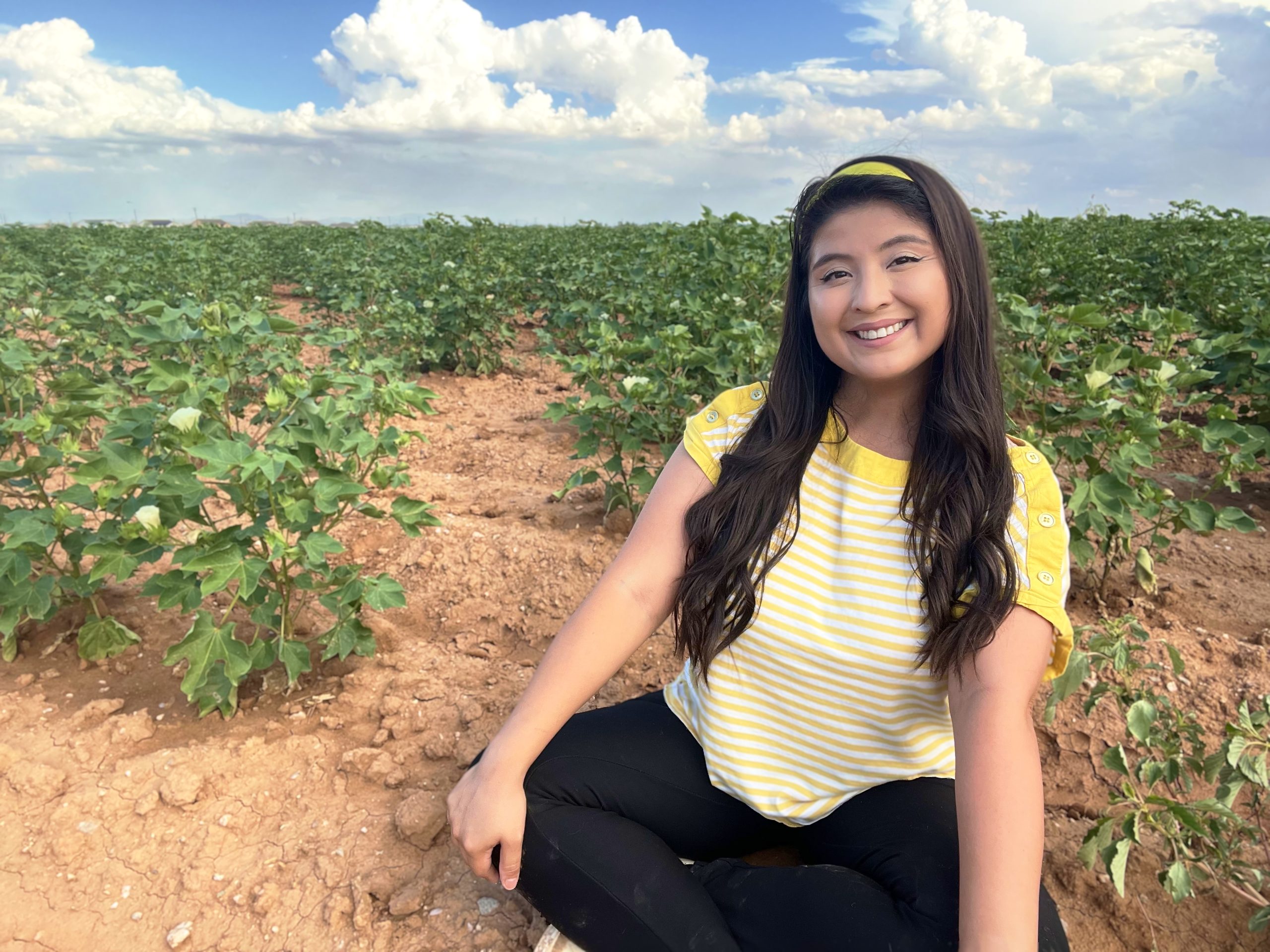Parents can’t escape the pink headband and sweet voice emblematic of Ms. Rachel, a YouTube star whose videos help sharpen children’s early language skills. But for mothers who teach both English and Spanish to their children, online bilingual options were limited.
Aimee Littles stood in front of her camera on a farm – framed by the rows of hay, alfalfa, and cotton and surrounded by the sounds of nature – to create a show to serve families like her own.
Throughout her childhood, Ms. Littles felt pressure to speak only English in public, to speak without an accent, and to assimilate. But she’s not alone. The stigma, pressures, and discrimination faced by immigrant parents at the time – as remains the case for some in the United States to this day – forced many families to abandon or hide their native language.
“My parents, they were very quiet, kept to themselves. It was almost like they felt some shame around it,” said Ms. Littles. “Growing up and seeing that, I wanted to change the narrative.”
When she posted her first video in 2023, she had never expected to have racked up tens of thousands of views on each of her videos, quickly gaining popularity with others navigating bilingual speaking patterns with kids of their own.
Her content, it turns out, is not just a way for children to learn and embrace their heritage. It’s also an avenue for parents who were distanced from their roots to rebuild that cultural connection. Ms. Littles wants families to feel loud and proud about their Latinidad, to see “all the beauty of our culture, wanting to learn language and wanting to be able to spread that joy that comes from a heritage like ours.”
Some parents are learning Spanish for the first time with their toddler through Ms. Littles’ videos. They’re starting from the basics themselves, a small step toward building a deeper connection with their heritage.
“There are parents like myself that don’t feel connected to their roots, and this kind of bridges that,” Ms. Littles said.
In a country where immigrants from Latin America are the targets of hateful rhetoric and policy, language can be a subtle but powerful gesture of community and activism.
“In this day and age, raising your voice, raising your language, your heritage, in a time and in a place where it’s trying to be silenced and it’s trying to be erased, I think is meaningful, and I think it’s impactful,” said Ms. Littles.
She continued, “You belong. Your children belong. Our culture belongs, and our language is a gift,” adding that her videos are not only for those with Latin American roots. The videos provide an opportunity for anyone to learn a language, broadening their connection to different communities and parts of the world.
She’s working to put her mission into further practice in her bilingual children’s book Corazón de Melón, which honors a variety of cultures and the sweet nicknames given to little ones worldwide. A percentage of the proceeds is planned to go to UNICEF, a United Nations humanitarian aid agency.
Not only is it a tool for a family’s cultural and social development, but also for their cognitive development.
Research from Northwestern University found that people both young and old can benefit from learning new languages. The skill improves memory, creativity, and visual-spatial skills – creating resilient children and guarding against cognitive decline in adulthood.
Socially speaking, research shows that multilingualism or bilingualism helps improve intercultural interaction and understanding as well as opportunities for economic and professional advancement.
Ms. Littles also employs “parantese” techniques – using simple words, exaggerated sounds, and a higher pitch – in her videos, which have been found to help children absorb the language and improve their speaking skills more efficiently.
Ms. Littles’ calming, outdoor content presents a sharp contrast to the bright and flashy children’s content that marks this point in time. She thanks Ms. Rachel in part for leading the way for online early childhood language educators like herself.
“She opened a beautiful door that has allowed educators like me to really be able to reach broader households and be able to have a broader impact,” she said, adding that she is in touch with Ms. Rachel’s team.
